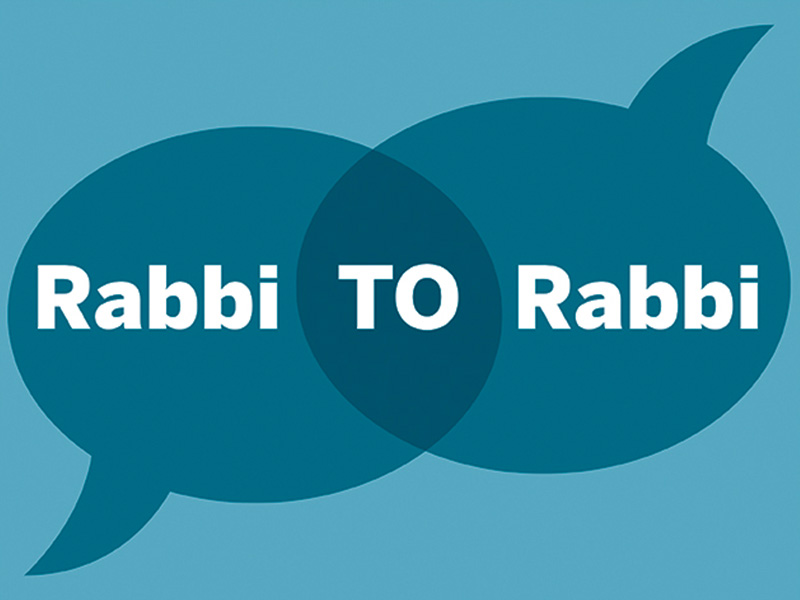Are Jews obligated to provide a moral compass, or should rabbis simply present Judaism’s wisdom while knowing that end-of-life decisions will be made by individuals?
Rabbi N. Daniel Korobkin
Beth Avraham Yoseph Congregation, Toronto
Rabbi Lisa Grushcow
Temple Emanu-El-Beth Sholom, Montreal
Rabbi Korobkin: We’d like to think that Jews agree on the most fundamental of issues – life and death. With the advent of the new Canadian bill regarding physician-assisted dying (PAD), however, it appears that even on such crucial matters, there’s no consensus.
Traditional Jewish law is clear and unequivocal: while heroic measures are not always mandated for the dying patient, hastening a person’s death in any way is tantamount to murder, even when it’s viewed by society as a “mercy-killing” or putting the patient out of their misery. And yet, sadly, no united statement condemning PAD has been forthcoming from Canadian Jewish clergy.
While the Catholic community has been able to present a united front of condemnation on this issue, the Jewish community is divided between the traditionalists who would uphold Halachah and the liberals who would subscribe to society’s new definition of compassion. It is times like this when the schism within Judaism appears to be more gaping than ever.
Rabbi Grushcow: We can’t compare the Catholic community, which is a hierarchical religious system, theologically united (at least in theory), with Judaism. Moreover, I would argue that while traditional Halachah is clear on not hastening death, many circumstances that we now face are different than those our ancestors encountered.
My own strong belief is that God gives us life, and it is up to God to take it away. But for someone who doesn’t believe in God, or who believes differently than I, my religious belief cannot be the determining factor. So what can, and should, we advocate for? First and foremost, fully accessible palliative care, as well as safeguards so that no one feels a duty to choose their death.
We should do everything in our power to ensure the sanctity of life. But we can’t pretend there is a unanimous Jewish voice on this issue.
Rabbi Korobkin: Slow and painful death has been part of the human experience since the beginning of time, and so it really isn’t related to new circumstances. Still, I’m heartened that you agree with the premise that one’s life is not the province of the individual, but is rather God’s.
But the wrongness of euthanasia isn’t just a “religious belief.” It is a universal moral issue, one that has far-reaching ramifications to the future of society. Witness the slippery slope that we are already beginning to see in the area of health care, and that will eventually spread. Once ending a patient’s life becomes socially acceptable, then a whole host of other actions, including providing incentives for suicide, become viable. The cheapening of the value of human life is what is at stake.
So instead of imposing our religious beliefs, we Jews have a mandate to provide a moral compass to society, especially when society’s own compass is running amok.
Rabbi Grushcow: I, too, am deeply concerned about the slippery slope this legislation creates. But having encountered this issue recently from a pastoral point of view, I think we need to recognize that people will make different choices.
I spoke to someone recently who was told that God would abandon him if he made certain choices about his life and his illness. My understanding is the opposite: that God is with us especially when we suffer or feel scared and alone. I also believe that God gives us more resilience than we can imagine, so we are obligated to teach the importance not only of life, but of hope.
Perhaps one of the things that distinguishes us is the liberal Jewish insistence on the ability of the individual to choose. Just as I am present for a Jew who has chosen cremation, honouring his or her final wishes, so, too, will I be present for those who choose physician-assisted death. Life and death are in God’s hands, but we humans also are involved. Part of our moral compass is to ensure that whatever choices someone makes, they need not be alone.
People want to learn the wisdom that Judaism has to offer on these difficult questions. Let’s take up our roles as advocates for what we believe is right, but let us also teach knowing that at the end of the day that these life-and-death decisions will be in individual hands.
